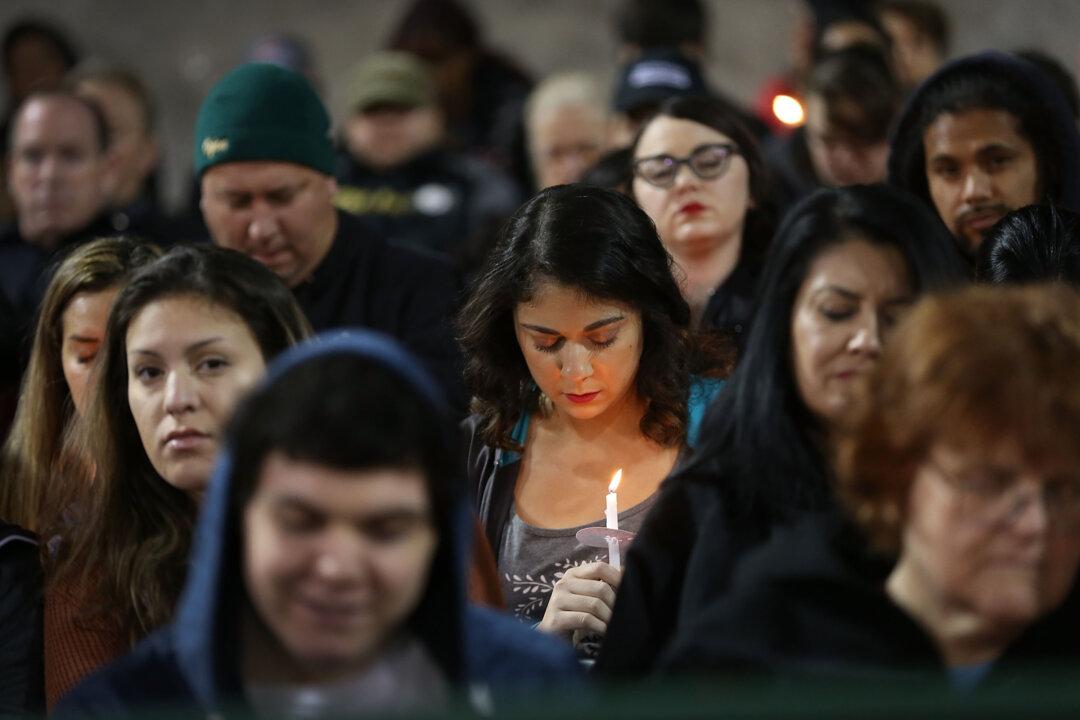SAN BERNARDINO, Calif.—The Pakistani woman who joined her U.S.-born husband in killing 14 people in a commando-style assault on his co-workers is now at the center of a huge FBI terrorism investigation, yet she remains shrouded in mystery.
The FBI acknowledges knowing little about Tashfeen Malik. Those who attended mosque with her husband, Syed Farook, said they know nearly nothing of her. Even Farook’s mother, who lived with the couple and their 6-month-old daughter, knows little, according to attorneys for Farook’s family.
The lawyers on Friday described the 27-year-old as “just a housewife” who was quiet like her husband and strictly followed Muslim custom. She wore traditional clothing that covered her face so her male relatives didn’t even know what she looked like, according to the lawyers for Farook’s mother and three siblings.
Authorities say she ditched the Muslim garb for combat-style gear Wednesday, when she and Farook attacked a training session and holiday luncheon in San Bernardino. A few hours later, they were killed in a shootout with police.
The FBI announced Friday it is investigating the mass shooting as an act of terrorism. If proven to be terrorism, it would be the deadliest attack by Islamic extremists on American soil since Sept. 11, 2001. A U.S. law enforcement official said Malik used a Facebook alias to pledge her allegiance to the Islamic State group and its leader just before the shootings.
FBI Director James Comey would not discuss whether anyone affiliated with IS communicated back, but he said there was no indication yet that the plot was directed by any foreign terror group or that the couple was part of a larger cell.
“The investigation so far has developed indications of radicalization by the killers and of potential inspiration by foreign terrorist organizations,” Comey said. He added that there “is a lot of evidence that doesn’t quite make sense” at this early stage.






